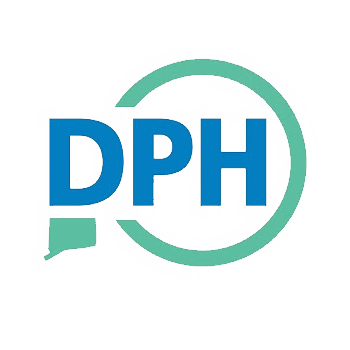FOR IMMEDIATE RELEASE Connecticut Department of Public Health
October 30, 2012 Contact: William Gerrish
(860) 509-7270
Hartford – With thousands of households in the state without power, and residents cleaning up all across the state, it is important to protect your health and safety in the storm’s aftermath. The Department of Public Health provides important health information in the aftermath of Sandy:
Flood Water
-
All flood water should be considered contaminated and you should avoid contact with any flood water.
-
All food and water that has come into contact with flood water should be considered contaminated and discarded. This includes packaged food items in plastic, paper, cardboard, cloth, and similar containers that may have been water damaged, as well as beverage containers with screw-caps, snap lids, crimped caps (soda bottles), twist caps, flip tops, and home canned foods, as these tops cannot be disinfected appropriately.
-
For information on cleanup after a flood, go to www.ct.gov/dph/floods.
Carbon Monoxide (CO) Poisoning
-
If you are using a generator, place it at least 20 feet from your home and away from neighbors' homes, windows, doors and vents.
-
Never operate a generator indoors or inside of a garage, basement, or on a porch.
-
DO NOT use charcoal or gas grills, gas lanterns or camping stoves indoors.
-
Know the symptoms of CO poisoning: headache, dizziness, weakness, nausea, vomiting, sleepiness and confusion. If you suspect CO poisoning, get outside immediately and then call 911.
Food Safety: When in doubt, throw it out!
-
The refrigerator will keep food at proper temperature for about four hours if the doors are not opened. A full freezer will hold a safe temperature for about 48 hours (24 hours if it is half full).
-
If the temperature in your refrigerator or freezer goes above 40 degrees, throw away perishable foods such as beef, poultry, fish, eggs, dairy, and cut fruits and vegetables.
-
Food can be safely refrozen if it still has ice crystals on it or has stayed below 40 degrees.
-
As always, if there is any doubt as to the safety of the food, it is best to discard the food rather than take a chance of contracting a foodborne illness. WHEN IN DOUBT, THROW IT OUT!
Drinking Water
-
If you notice any unusual changes to the water (color, taste or odor), use boiled or bottled water until told it is safe by your public water supplier or local authorities or, for private well owners, testing is done to find if contamination is present in the water supply.
- Listen for water reports from your public water supplier or local authorities to find out if your water is safe for drinking and bathing.
- If an advisory has been issued concerning contaminated water or if you suspect your private well has been contaminated, use only bottled, boiled, or treated water for drinking, cooking, food preparation, brushing teeth, and hand washing. Infants, toddlers, the elderly, and people with severely compromised immune systems should be bathed at a safe temperature using boiled or bottled water.
- Homeowners in flooded areas whose private wells have flooded should consider their wells contaminated. For information on disinfecting flooded wells, go to www.ct.gov/dph/floods.
Sewage Back-ups
If you have a sewage back-up in your home:
- Turn off the power if there is standing water or the possibility of electrical wires coming into contact with water or wet materials.
- Do not flush the toilets.
- Keep all children and pets away from the sewage.
- Wear rubber gloves when handling anything contaminated with sewage. Wash hands immediately afterwards. Never touch raw sewage with bare hands.
- If your home is served by a municipal sewer system, call your local sewer department (town public works department or water pollution control authority) or go to their website.
- If your home has a septic system, call your local health department for advice about how to dispose of the water/sewage.
- For information on how to properly cleanup sewage, go to www.ct.gov/dph/floods.
Check on Family, Friends, and Neighbors
-
People who are homebound, have special healthcare needs, or who live alone may need assistance. Call or visit family, friends, or neighbors who might need help. If you have no power, take a few minutes to visit with your neighbors. Good relationships are good health. If you find someone who needs shelter or power for life-sustaining medical devices, dial 2-1-1 for assistance.
For more information on Hurricane Sandy recovery, go to www.ct.gov/sandy.
###

